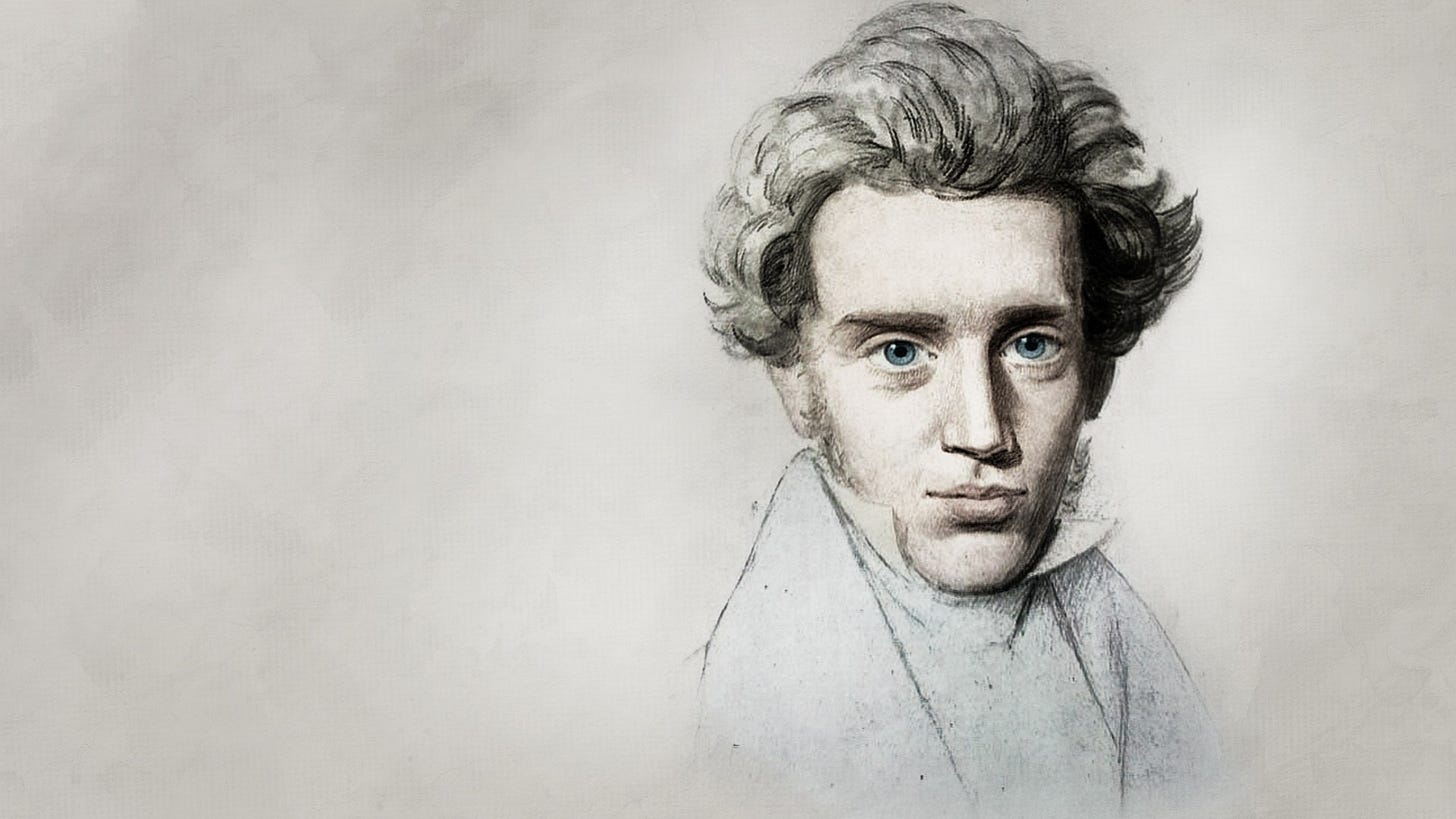Kierkegaard: Why the Online Crowd Breeds Spiritual Emptiness?
Søren Kierkegaard, the profound Danish philosopher, foresaw a spiritual malady that now manifests acutely in our hyper-connected digital age. His insights into the ‘sickness unto death’ and the dangers of the ‘crowd’ offer a chillingly accurate diagnosis of the existential void experienced by many in the relentless pursuit of online validation.
This deep guide explores how his timeless critique illuminates the spiritual emptiness fostered by social media, where authentic self-expression often gives way to superficial engagement, and offers a path toward reclaiming genuine purpose.
The Digital Age’s Lingering Sickness
Have you ever scrolled through a feed, feeling a strange mix of connection and profound isolation? Perhaps a sense of unease, a gnawing hollowness despite being surrounded by countless digital interactions? This isn’t just a byproduct of modern life; it’s a symptom of a deeper malady, one that Søren Kierkegaard, the Danish philosopher of individuality and despair, identified over a century and a half ago. He called it the ‘sickness unto death’ – a despair rooted in the self’s inability to relate genuinely to itself or to a higher power. Today, this spiritual emptiness finds a powerful and terrifying manifestation in the online crowd.
I believe Kierkegaard’s insights offer not just a critique, but a prophetic warning about the trajectory of an increasingly interconnected yet spiritually hollow society. As we navigate the complex currents of digital existence, his reflections on subjectivity, authenticity, and the leveling effect of the crowd become an urgent lens through which to examine our own lives and the culture we are collectively building. This guide will walk you through his philosophy and its alarming relevance to our digital lives, offering a pathway to confront the spiritual void.
Kierkegaard’s Foundation: Subjectivity and the Crowd
At the heart of Kierkegaard’s philosophy lies the radical assertion that truth is not found in objective facts or collective consensus, but in the intensely personal, subjective experience of the individual. As his pseudonym Johannes Climacus famously put it,
Subjectivity is Truth.
– Søren Kierkegaard (via Johannes Climacus)
This isn’t to say facts don’t exist, but that genuine meaning and understanding are forged in the crucible of personal engagement and inner reflection. This individual relationship to truth stands in stark contrast to the modern inclination to outsource our beliefs and identities to external sources, particularly the ever-present ‘crowd.’
Kierkegaard was deeply wary of the crowd, viewing it as a force that dilutes personal faith and reduces individuals to mere members of a collective, stripping away their unique identity. He foresaw how societal pressures could lead to a ‘leveling’ of voices, where all opinions are given equal weight, regardless of their validity or depth. This critique, written long before the advent of the internet, feels eerily contemporary. The digital crowd, with its algorithms and viral trends, can easily drown out individual thought, pushing us towards conformity and the safety of popular opinion rather than the courageous, often lonely, path of authentic self-discovery.
The Digital Echo Chamber: Hierarchies and Amplification
The online world, despite its initial promise of democratized communication, has paradoxically created new, often insidious, hierarchies. Major tech companies like Facebook, Amazon, and Google, sometimes collectively referred to as FANG, control the architecture of our digital interactions. Within these platforms, algorithmic visibility dictates who gets seen and heard. Likes, shares, and comments become a form of currency, elevating certain voices while marginalizing others. This replicates a digital version of traditional social hierarchies, fostering an environment where perceived popularity often trumps substance.
One of the most concerning consequences of this architecture is the amplification of extreme viewpoints. Platforms are designed to highlight content that generates engagement, and unfortunately, controversy and emotional intensity often drive the most interaction. This leads to an environment where the ‘loudest voices’ dominate, often at the expense of civil discourse and nuanced understanding. As a result, the digital landscape often prioritizes emotional capture over meaningful exchange, pushing us towards sensationalism and away from the quiet contemplation that true self-awareness demands. This dynamic can leave the ‘exhausted majority’ feeling unheard and disengaged, further contributing to a sense of spiritual fragmentation and a collective descent into a cacophony of unmoderated opinions.
The Sickness Unto Like: Spiritual Emptiness Defined
Kierkegaard described despair not merely as unhappiness, but as a ‘misrelation of the self to itself and to the power that established it.’ He eloquently termed this condition the
sickness unto death, stemming from a disconnection between the self and its true purpose.
– Søren Kierkegaard
In our contemporary society, this spiritual emptiness manifests acutely within online interactions. We relentlessly pursue external validation – the likes, shares, and comments – which promises affirmation but ultimately exacerbates feelings of emptiness. This pursuit often distracts us from engaging with our inner selves, obscuring our true desires and aspirations.
When our self-worth is tied to the fluctuating metrics of social media, we become detached from our authentic identities. We construct curated personas, perform for an audience, and measure our lives against idealized images presented by others. This constant external focus prevents the deep introspection necessary to understand who we truly are and what gives our lives genuine meaning. The spiritual void deepens as we prioritize public perception over private conviction, sacrificing depth for the illusion of belonging.
The Nature of Our Digital Despair
Kierkegaard identified three forms of despair: unconscious despair, conscious despair that resists change, and defiant despair. Many of us in the online crowd unwittingly fall into a form of unconscious despair. We are unaware that our constant reliance on social media and digital connections contributes to our spiritual void. We might feel a vague sense of unease or unfulfillment, but we struggle to pinpoint its source, often reaching for more digital engagement as a supposed antidote, only to deepen the problem.
This relentless pursuit of superficial engagement fosters a superficial sense of




